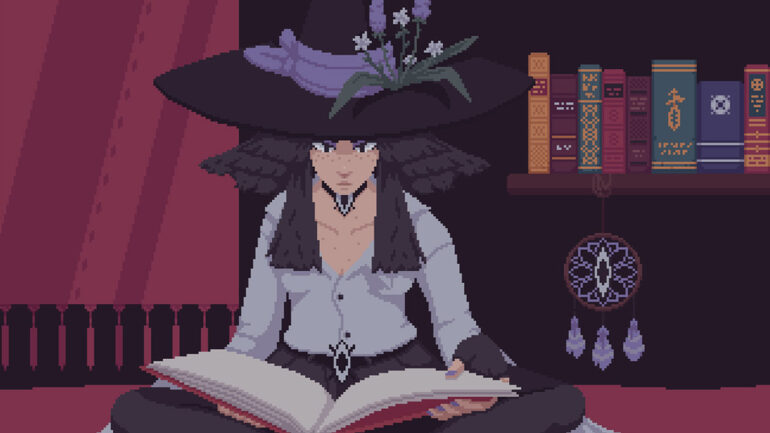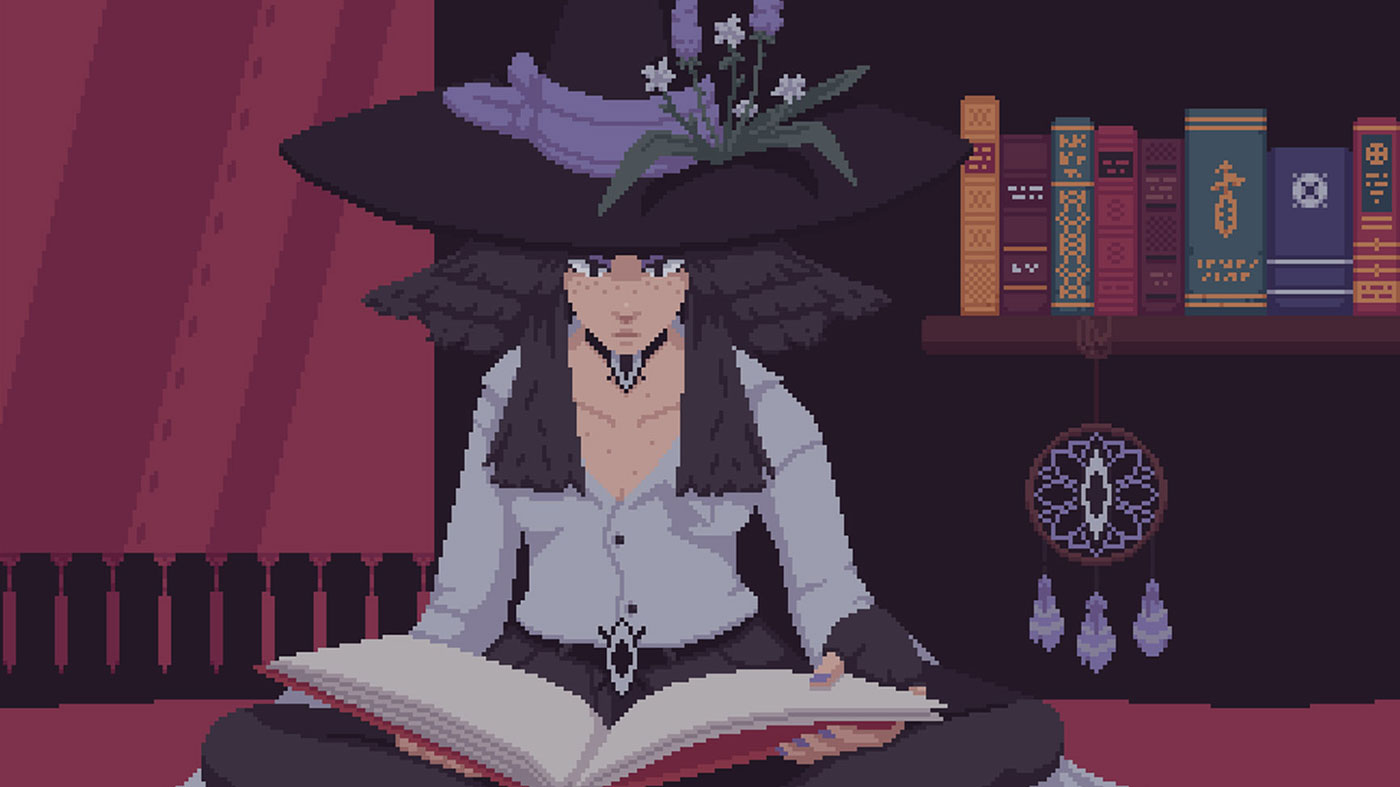Along with their ability to earnestly tackle grave subject matter, one thing that has always grabbed me about the catalogue from Deconstructeam is how concise, to-the-point, and economical they are in telling their stories. Although they might dance about to fill in the periphery of the main conflict, the way they’re effectively one-act stage plays grabs my attention. The Red Strings Clubs had its eponymous bar, the thrilling Gods Will Be Watching served a number of one-scene scenarios, and their latest title, The Cosmic Wheel Sisterhood is set almost entirely upon an asteroid in the lonesome void of space.
This isn’t a sisterhood of the travelling pants variety, what we’re presented in The Cosmic Wheel Sisterhood is a witches’ coven on the verge of a leadership spill. You play as Fortuna, who has been relieved of her Tarot deck and condemned to the outer reaches of space for millennia. Early in the piece, and restless from serving a couple of centuries of her sentence, Fortuna breaks Magical Law to summon Abramar, an all-powerful Behemoth, to her beck and call. And like a spoiled brat, inconsiderate of the cost, she signs a pact with the Behemoth and is granted the faculties to craft a deck of her own and peer behind fate’s curtain once more.
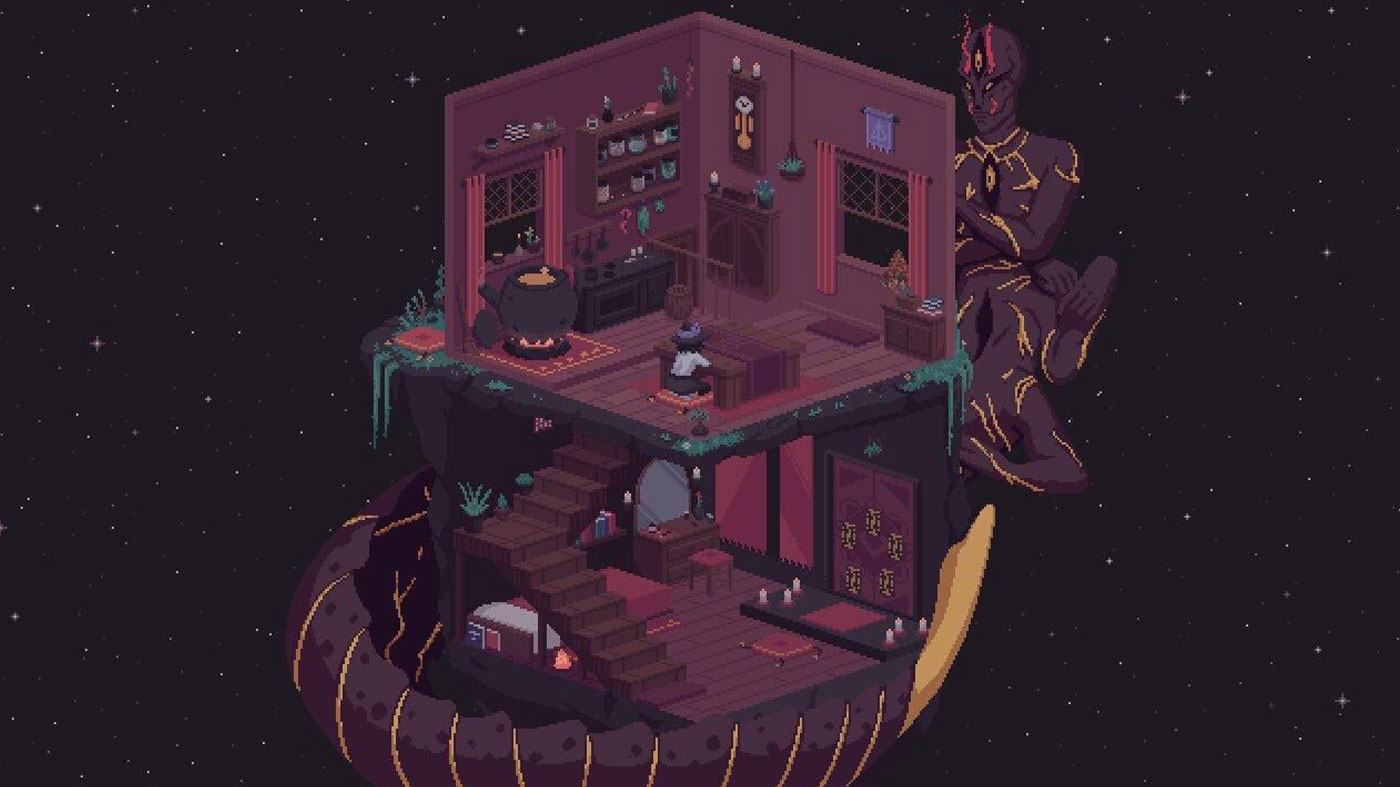
It wouldn’t be a Deconstructeam game if it didn’t have something to say, and Cosmic Wheel’s big themes include identity, living with a community, and, of course, the destructive results that trail in the wake of those irresponsible with their power. Framing all of that within the context of a witches’ coven makes for an ingenious premise that I couldn’t get enough of. Further to that, as witches are inherently women the cast is refreshingly made up almost entirely of strong, literally powerful, women even if a few take unconventional, mythical forms like the deer folk and the coven’s eldest who is an actual tree.
I always love how hands-on and personal the game mechanics feel in a Deconstructeam title. They never for a second feel at odds with the often-deeply private conversations that serve as the foundation for the game’s narrative and core loop. In fact, it’s often specifically entwined.
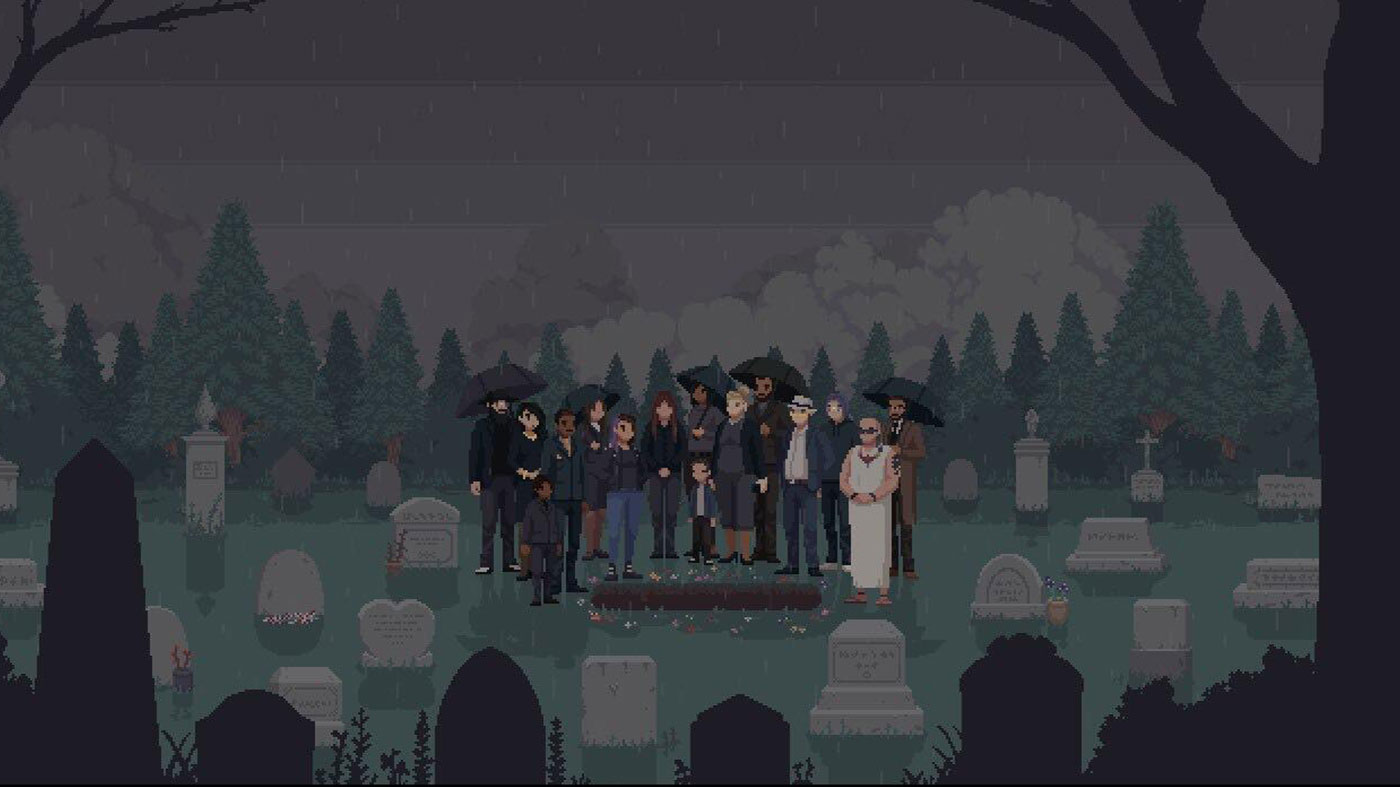
This time, instead of mixing drinks and hand-moulding implants out of genetic clay, you’re crafting, card-by-card, a new divination deck. By combining a number of pre-designed elements like backgrounds and arcana, you can create some truly unique designs that can bring on feelings of confrontation, confoundment, and all things in between. The game will spit out a charming title for your card along with a vague horoscope that stitches together the elements used to create something that feels forbidden and yours. Each of the pieces has a cost attached that, when placed, will draw from the four elements of magic held close in your grimoire: air, water, fire, and earth.
Although time becomes another “currency” you spend in the game’s last act, think of your grimoire as your magical bank balance. You can withdraw from the power source to devise new cards, and make deposits through readings with the many visitors that darken your door. Eventually, as you grow more powerful and are gifted more ominous arcana, you’ll be able to dispel old cards at your cauldron. Think of this function as a respec that returns all spent points back to your kitty, which I think is great because you’re never stifled by a lack of resources to hop in and create a new card.
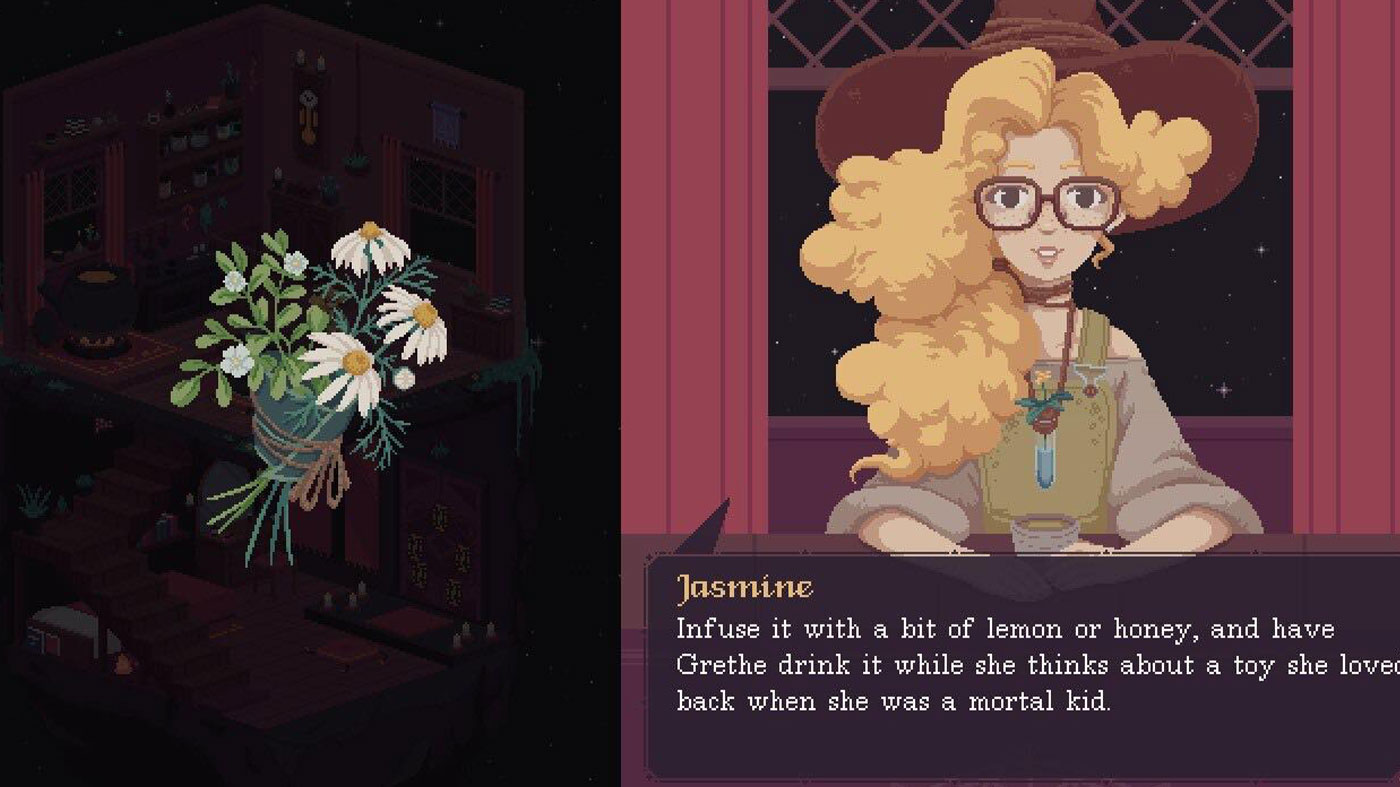
Creating a deck is just one part of the puzzle, it’s ultimately worthless without susceptible folk to give hope to. Fortunately, Abramar’s pact grants visitor privileges to Fortuna to soften the remaining cycles of exile she faces and, as such, serves her with a lot of opportunities to practice her art. Old friends, arbiters, and familiar faces from Fortuna’s pre-ascension years, all witches alike, interchangeably cross the cosmos to visit your little pit stop to talk shop and get a glimpse at the future that awaits them.
Like is so often the case, the conversations feel like the centerpiece of the experience. They’re really esoteric exchanges that lean full-weighted on philosophical ponderings about big concepts like defining the self, power abuse, Spider-Man’s great ethos about responsibility that’s even referenced tongue-in-cheek in-game, and, in the last act especially, communal politics.
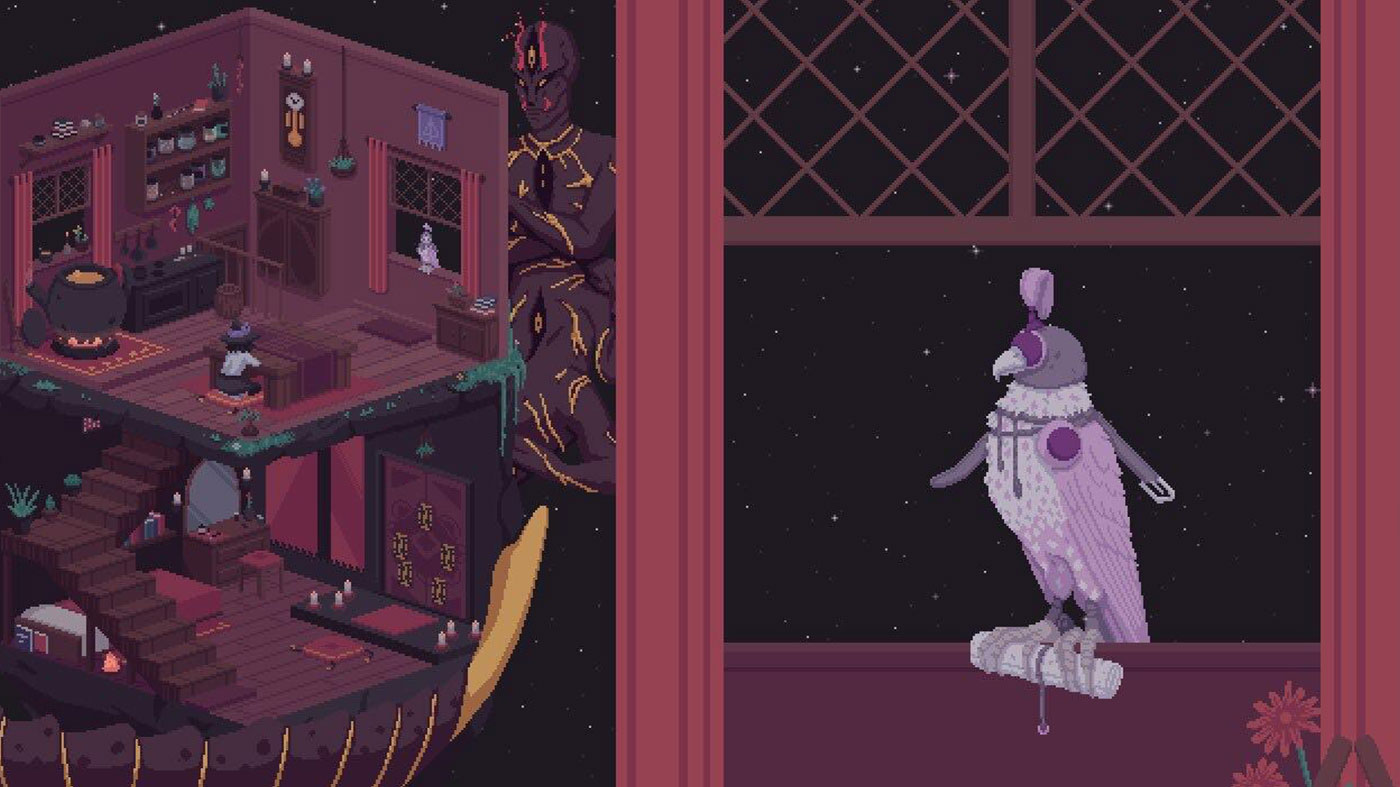
It was hard not to adore the insightful dialogue and writing in Cosmic Wheel, it’s brilliant and clever and never misses its mark with the message it’s hammering home. During the last act, as the pre-election campaigning to replace the coven’s figurehead rages on, all of the chatter is framed with the limits of a ticking clock that corners the player into a brief bout of time management that feels like an odd departure compared to the rest of the game’s chill pace.
For a narrative reason I won’t spoil, the implied stress of managing these resources is kind of artificial which does undercut the intended tension. It feels like a cut scene from Gods Will Be Watching, which does all of the things the last act tries to do but better.
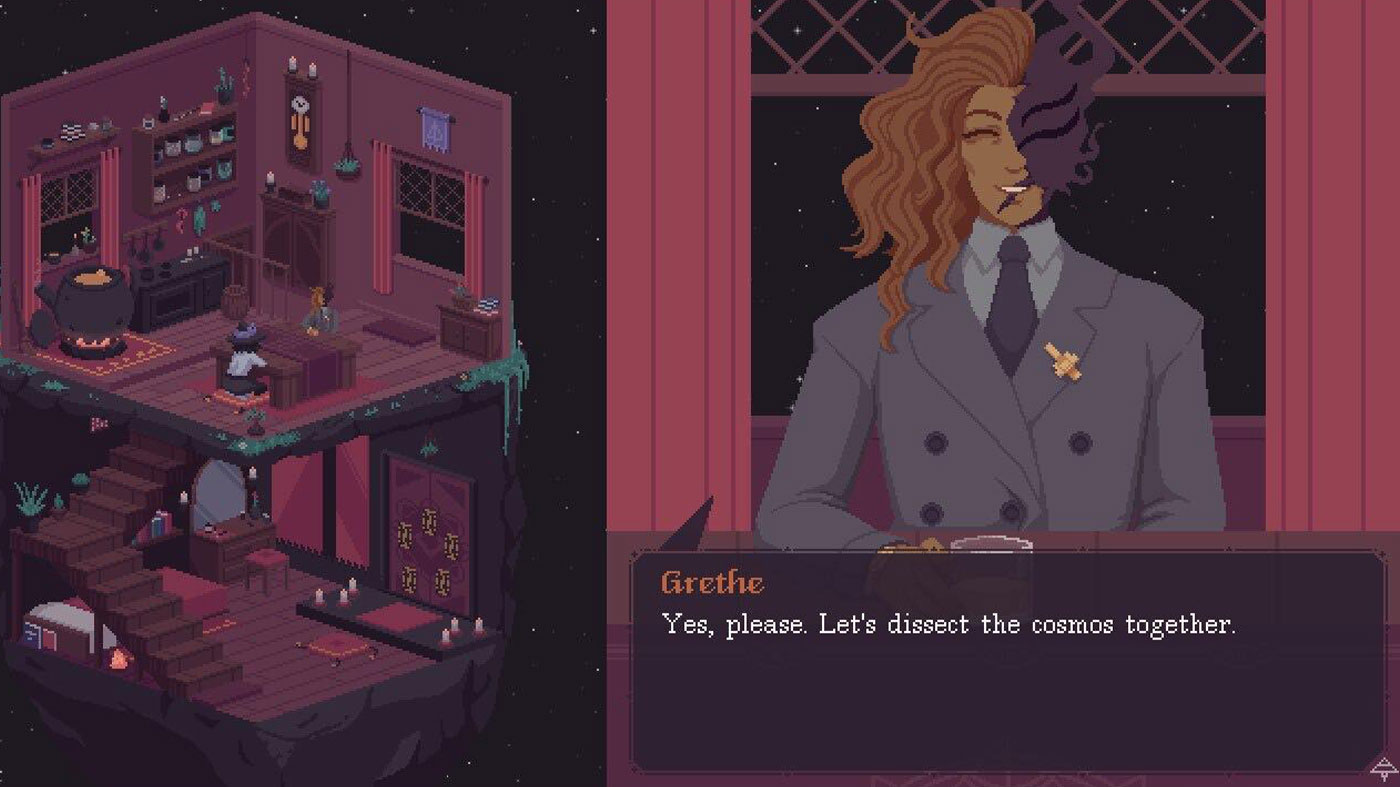
Of all the interpretations we’ve had of witches in popular culture, I do wholeheartedly think The Cosmic Wheel Sisterhood’s take is the most quirky and special I’ve perhaps ever seen. They don’t entirely do away with the pointy hats and bubbling cauldron, but having the story be a centuries-spanning tale told largely aboard an asteroid roving against a star-speckled backdrop felt note-perfect and grand in a way most supernatural stories don’t.
I’m certainly glad the team didn’t do away with their signature art style for this game. In fact, keen-eyed players will notice several nods to the team’s back catalogue whether it’s the Red Strings Club itself or the elderly gardener from Essays on Empathy. While the cards we’re able to make in-game feel like they’re limitless in terms of creative potential, it’s impressive that the game’s established universe can stand shoulder-to-shoulder with just about anything I could conjure up.
More than any of Deconstructeam’s other titles, I feel as though lore is packed into, and realised through beautiful pixel art, every inch of space here and it’s a story simply bursting with originality.


